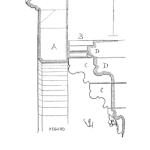
Reliability Ethics
Abstract
Carl and Fred discuss the broad subject of reliability ethics, what it means, and how it impacts reliability professionals.
ᐅ Play Episode
Your Reliability Engineering Professional Development Site
Author of Inside FMEA articles, FMEA Resources page, and multiple books, and a co-host on Speaking of Reliability.
This author's archive lists contributions of articles and episodes.
by Carl S. Carlson Leave a Comment

Carl and Fred discuss the broad subject of reliability ethics, what it means, and how it impacts reliability professionals.
ᐅ Play Episode
Risk is a function of how poorly a strategy will perform if the “wrong” scenario occurs. Michael Porter
The use of Compensating Provisions in FMEA is a key part of many FMEA standards. Regardless of what FMEA standard you are using, everyone who aspires to doing FMEAs properly should understand the role of mitigating the risk of very high severity.
by Carl S. Carlson Leave a Comment
“True intuitive expertise is learned from prolonged experience with good feedback on mistakes” Daniel Kahneman
Key Teaching Principle #9 is the instructor always answers questions in a meaningful way, and provides consistently positive critiques to students to enhance their learning. [Read more…]
by Carl S. Carlson Leave a Comment

Carl and Fred discuss a reader question about FMEA and Hazard Analysis and whether or not they can be combined into a single analysis.
ᐅ Play Episode
by Carl S. Carlson Leave a Comment

Carl and Fred discuss the challenges of hidden reliability problems, especially issues that are certain to occur, but not easily observed. When failures are invisible or hidden, they can be missed or ignored.
ᐅ Play Episode
“The way we spend our time defines who we are.” Jonathan Estrin [Read more…]
by Carl S. Carlson Leave a Comment

Carl and Fred discuss a listener question on FMEA, about reducing the severity level through mitigation strategy. Specifically, can FMEA reduce the likelihood of the effect of failure?
ᐅ Play Episode
by Carl S. Carlson Leave a Comment
It isn’t about the words you say. It’s about the energetic message you send. Pete Carroll [Read more…]
by Carl S. Carlson Leave a Comment

Carl and Fred discuss an interesting listener question. The listener’s management asked him to create an “eye-popping” chart that summarizes the results on an FMEA.
ᐅ Play Episode
by Carl S. Carlson Leave a Comment
The shortest distance between truth and a human being is a story. Anthony de Mello
Key Teaching Principle #6 is the instructor uses stories and personal experiences to deepen learning.
by Carl S. Carlson Leave a Comment

Carl and Fred discuss why understanding the “mode” of failure is essential in Failure Mode and Effects Analysis.
ᐅ Play Episode
by Carl S. Carlson Leave a Comment

Carl and Fred discuss some of the most common reliability mistakes they have seen in their careers, both ones they have personally made or viewed.
ᐅ Play Episode
by Carl S. Carlson Leave a Comment
“A teacher who is attempting to teach without inspiring the pupil with a desire to learn is hammering on cold iron.” Horace Mann
The definition of interest is “a feeling that accompanies or causes special attention to something or someone.” [Read more…]
by Carl S. Carlson Leave a Comment

Carl and Fred discuss their overall approach to FMEA, what works and doesn’t work.
ᐅ Play Episode
by Carl S. Carlson Leave a Comment

Carl and Fred discuss reader questions on FMEA detection, a subject which can be challenging and confusing. Detection is a key part of FMEA during product development as well as in operation. This podcast will discuss some of the “knottiest” challenges with understanding detection in FMEA.
ᐅ Play Episode
 Ask a question or send along a comment.
Please login to view and use the contact form.
Ask a question or send along a comment.
Please login to view and use the contact form.